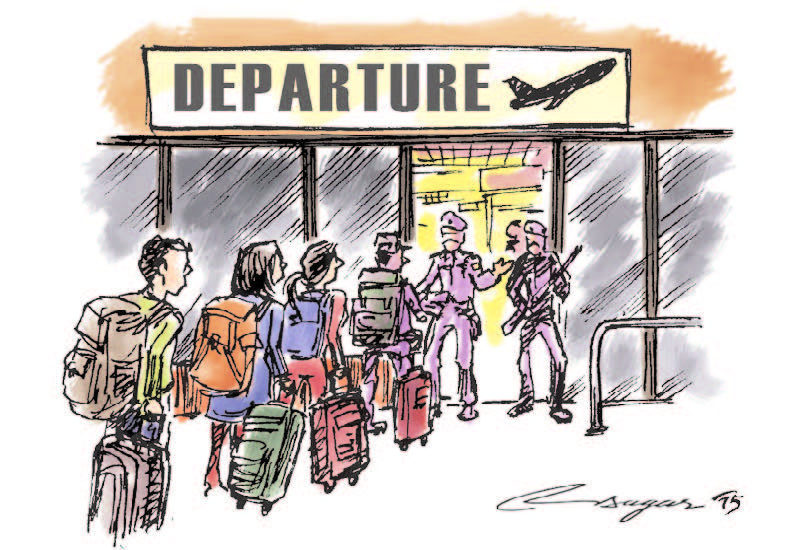KATHMANDU (TIP): Nepal will allow its nationals to go to war-torn Afghanistan for work, a labour ministry official said on October 20, ending an almost four-month ban imposed after 13 Nepali security guards were killed by a Taliban suicide bomber in the Afghan capital.
Labour Ministry spokesperson Govinda Mani Bhurtel said employers would have to make adequate security arrangements for their stay, travel and work before Nepali nationals were given a work permit by the government to leave Nepal.
“We’ll allow our people to go to Afghanistan to work only with foreign missions and international companies located inside the Green Zone which is considered safe,” Bhurtel told the Thomson Reuters Foundation.
“Their security and safety must be ensured by the employers,” he said, adding the organisations included UN agencies and embassies of the United States, Britain and Canada.
Nepalis are still banned from working in other conflict hotspots such as Iraq, Libya and Syria, Bhurtel said.
The impoverished Himalayan nation, which relies heavily on remittances from its migrant workers, imposed the ban after 13 Nepalis and two Indians who were security guards at the Canadian Embassy in Kabul were killed while on a bus on June 23.
Nepal, one of the world’s 10 poorest countries, is still reeling from two devastating earthquakes in 2015 that killed nearly 9,000 people.
Political instability since a decade-long civil conflict ended in 2006 has discouraged investment, stunted growth and curtailed job creation –forcing hundreds of thousands of Nepalis to migrate overseas in search of work.
More than four million of the country’s 28 million population are working mainly in the Middle East, South Korea and Malaysia as guards, drivers, construction workers or domestic staff –sending home remittances which make up nearly 30 percent of the country’s annual gross domestic product.
But many also face abuses such as a lack of freedom of movement, long working hours, unsafe working conditions and withholding of their salaries, activists say, adding that many are trafficked through India and then onward to these countries.
Bhurtel said it was imperative that employers take full responsibility for their overseas workers and ensure all provisions are made to ensure their safety.
“If there is an accident or attack on workers the employing company must pay compensation and make arrangements for their evacuation to Nepal during emergencies,” said Bhurtel.
(Reuters)
